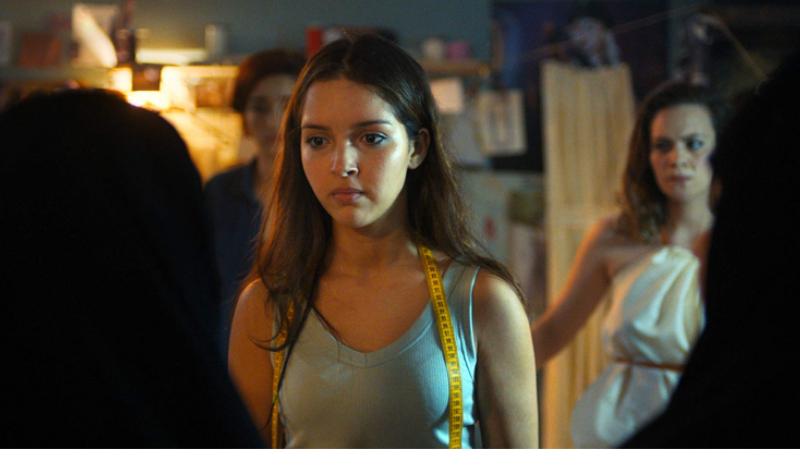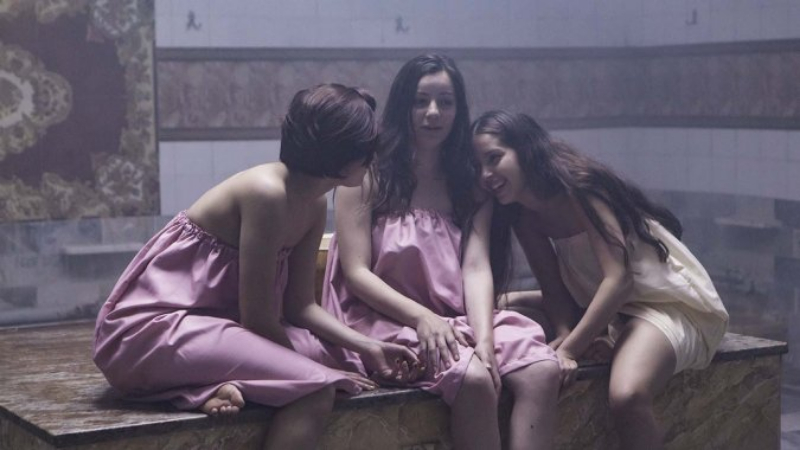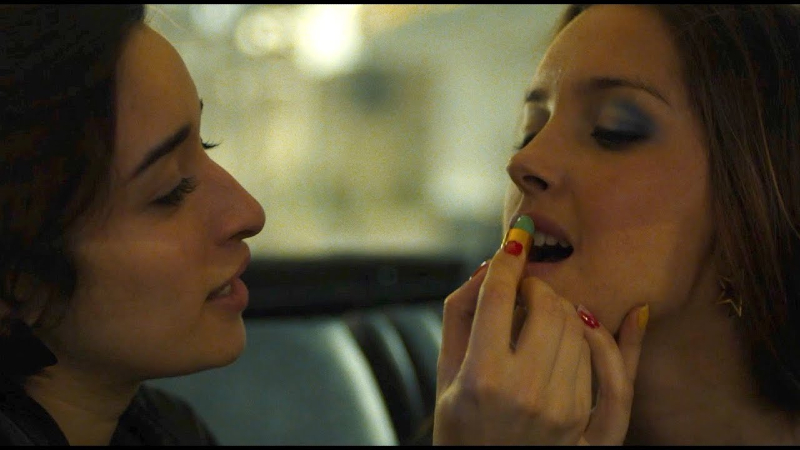Director – Mounia Meddour – 2019 – France, Algeria, Belgium, Qatar – Cert. 15 – 108m
****
In selected cinemas (Curzons Bloomsbury and Mayfair). Also on Barbican cinema on demand, BFI Player, Curzon Home Cinema and Peccadillo Pictures On Demand from Friday, August 7th.
Algerian university fashion student Nedjma (Lyna Khoudri) is often called ‘Papicha’, a typically Algerian word that refers to a funny, attractive, liberated young woman. Nedjma and her roommates love life and think nothing of going out to nightclubs to put on fashion parades.
However, this being the late 1990s an upsurge of Islamic conservatism manifests itself throughout the narrative. First, fly posters advocating the hijab for women appear on walls (Nedjma immediately tears down these posters on seeing them). Later, she confronts a young man putting these posters up, but after challenging him notices a handgun tucked in his waistband so quickly backs off.

Groups of hijab-clad women take the law into their own hands vigilante style. They surround and take away a lecturer addressing Nadjma’s class. They turn up in the middle of the night at her shared room and threaten the occupants. And worse is to come.
One of the difficulties about writing about this film is that some of its narrative incidents would be much more shocking if you don’t know exactly what’s coming. There are some truly heart-stopping moments. Although she was never a fashion student and some of the incidents in the film are pure fiction, much of the local colour and the experience of studying at an Algerian University around this time is drawn from director Meddour’s own background and consequently has a ring of authenticity about it.

While many people in the film typified by her friend Kahina (Zahra Doumandji) would like nothing more than to leave Algeria and go and live somewhere else without its problems, Nedjma has no plans to leave, not even as the situation worsens. Again, this mirrors the director’s own history: after studying in an Algerian university, she was uprooted when her family got out, relocating to France.
For supporting characters, Meddour’s script gives Nedjma a friend Wassila (Shirine Boutella) with whom she goes clubbing and the more conservative (but not fanatical) Samira (Amira Hilda Douaouda) who is planning to get married and is the constant butt of the other two’s horseplay and jokes, although they all get on in the shared uni room somehow. There are two boys Nedjma and Wassila pick up at a club, but ultimately they want their women to be submissive Islamic style and it doesn’t work out for either girl.

To an extent, there’s a feeling that the students are blinkered – they dress like Western women and there are stories of students being shot for not covering their bodies properly. Two older characters on the fringes of the drama have clearer ideas. Nedjma’s college tutor eventually forbids her from staging a fashion show for fear of what might happen if the event goes ahead while hall of residence concierge Mohktar (Samir El Hakim) exploits the increasing levels of campus security to take sexual advantage of the female students.
The film is more focused in some parts than others, but it deals well enough with some unusual and very specific historical subject matter and you’ll likely come away knowing a lot more about Algeria in the late 1990s than you did going in. Plus, the determination and joie de vivre of the central character is infectious, even as the society around her moves in the opposite direction.
Papicha is out in selected cinemas (Curzons Bloomsbury and Mayfair). Also on Barbican cinema on demand, BFI Player, Curzon Home Cinema and Peccadillo Pictures On Demand from Friday, August 7th.
Trailer:
